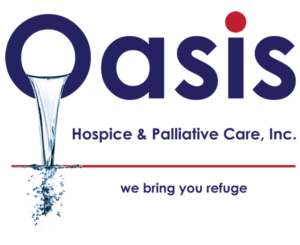Nobody wants to consider losing someone they care for. As a result, many families put off discussing end-of-life or hospice treatment. If you’re wondering when to call hospice, it’s possible that your loved one is already qualified for this additional layer of advanced treatment and hospice support. Even if your loved one is not currently qualified for hospice care, knowing when to call hospice before a crisis occurs will allow you time to learn about the various options and decide which one is better for your family.
Contact Hospice
Many families wait until their loved one’s final days and weeks to call hospice, not realizing that they could have started providing free advanced nursing care, prescriptions, medical equipment, and supplies related to their loved one’s terminal illness much sooner. Hospice care enhances the patient’s quality of life by managing pain and other effects of their disease, and it also improves the lives of the patient’s family and caregivers by providing someone to rely on, seek advice from, and obtain much-needed help during this stressful period.
If your loved one is having any of the following signs, you should call hospice immediately:
- frequent ER visits or hospitalizations
- a decrease in their ability to perform everyday tasks such as feeding, dressing, walking, or using the bathroom
- an increase in falls
- changes in their mental abilities
- weight loss that is gradual
- Tears in the skin, infections, and other symptoms of ill health
When to Call Hospice
If you’re seeing these symptoms and aren’t sure when to call hospice, now is the time. To qualify for hospice care, your loved one must be diagnosed by a physician as having a terminal illness with a prognosis of less than six months if the illness progresses as expected. If your loved one survives more than six months, they will continue to receive hospice treatment as long as their eligibility is recertified by a physician.
If your loved one’s health improves while on hospice care, or if they prefer curative medications to comfort care, they will stop receiving hospice care and try other choices at any time. When your loved one’s condition worsens, they will need to return to hospice care.
Oasis Hospice & Palliative Care collaborates with your loved one’s primary care provider to ensure that they receive the appropriate quality of care at the appropriate time and in the setting of their choosing.
EIGHT INDICATORS HOSPICE IT MAY BE TIME FOR HOSICE CARE
When to call hospice is a crucial question that most don’t how to answer. Here are 8 signs that you should consider:
- Hospitalizations or ER visits on a regular basis
- Infections that recur on a regular basis
- Reduced appetite, resulting in major weight loss and body structure changes.
- Along with intensive medical attention, my health has deteriorated rapidly in the last six months.
- Pressure that won’t go anywhere, shortness of breath, nausea, or vomiting
- Reduced alertness, withdrawal, sleepiness, or mental confusion
- Inability to carry out everyday activities such as feeding, walking, using the toilet, personal washing, or dressing.
- Instead of harsh therapies, the decision was made to concentrate on quality of life.
Hospice care isn’t about dying; it’s about figuring out how to live your life with the time you have left. Most of the ambiguity and uncertainty stems from the section about how much time is left.
No one wants to join hospice too soon. Keep in mind that you can terminate hospice and resume curative treatment at any time. Patients may also switch to a different health-care provider.
What can Oasis Hospice Care do for your Loved one?
Hospice care is an extra layer of treatment for your loved one at home or in a care center, provided in collaboration with your family and their doctors. When a patient enters hospice care, they are surrounded by a team of people who can help them with their physical, mental, and spiritual needs. The treatment for the patient’s terminal disease, as well as all medical equipment and supplies related to this condition, are given at no cost to the patient or his or her family.
Nurses and aides are available from Oasis Hospice & Palliative Care to help with health and personal care needs. Our social workers will assist the family in locating additional services (like grief support) and preparing for the end of life. Chaplains provide spiritual guidance and grief support. Volunteers step in and offer companionship visits to your loved one while allowing family members to relax. For those who need additional assistance, bereavement counselors are available.
If your loved one is in pain, our team of pain relief specialists will work to relieve it as soon as possible. If your loved one is having trouble sleeping or has any pain or mobility problems, our team will consult and search solutions with their doctor to discuss these concerns.

